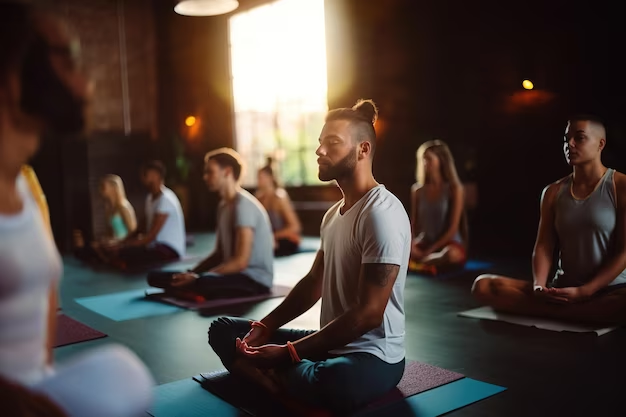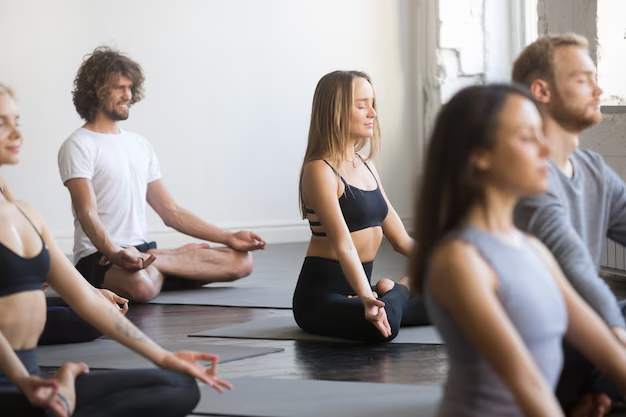
Finding the right meditation practitioner is really an important thing for your practice. When so many potential teachers are there to mentor you, it is really not easy to find the right one according to your goals and needs. Here in this guide, we will answer the most common questions people ask when searching for a meditation teacher. On the basis of which key qualities and credentials you should look for, you will be equipped to make an informed decision and start a meaningful meditation practice.
How do I find a qualified meditation professional?
Finding a qualified meditation professional involves checking their credentials, experience, and teaching style. Look for certifications, years of practice, and client reviews to ensure they fit your needs.
Research should be conducted on the background of a meditation professional. First, look for certifications from institutions recognized around the world since formal training is indicated through them. Experience: how long they have practiced and taught meditation. You can get insights into their effectiveness by reading testimonials and reviews from clients.
Try to hold an introductory session to assess the teaching style and whether it tallies with your goals. Compatibility is very key because the right connection between a teacher and student gives the needed experience of learning. Additionally, the professional should be able to tailor their teaching to suit your needs, whether you’re a novice in meditation or looking to take your practice deeper.
What certifications should a meditation teacher have?
A meditation teacher should have certifications from recognized institutions like the International Mindfulness Teachers Association (IMTA) or similar organizations. This ensures they have formal training and expertise.
As a rule, a meditation professional has received recognition from proven institutions, such as the International Mindfulness Teachers Association (IMTA), Yoga Alliance, and many more. These certificates indicate that a teacher has received professional training according to these grounds, including techniques of meditation, ethics, and teaching methodologies.
Other areas related to a teacher’s profession, like training in psychology or yoga or MBSR, could add extra capabilities to some of the teachers. Certification in itself isn’t everything; it does, however, lay a good foundation that ensures the teacher is adequately trained in the principles and techniques of meditation.

What qualities should I look for in a meditation professional?
Key qualities in a meditation professional include empathy, experience, and adaptability. They should be able to guide various meditation styles and adjust techniques to your individual needs.
Ideally, in looking for a meditation professional, one would focus on qualities and skills beyond certifications. For instance, empathy is important because you will navigate some tough times in practice, with a caring teacher by your side. Experience-experience with more years but also exposure to different styles of meditation- is important. Equally important are exposures to different kinds of students whom they have taught.
Another important trait is adaptability; so a good practitioner would be able to adjust techniques according to your learning pace, needs, and goals. Communication skills are of course key, as they should explain concepts and techniques in a way that can hit a response within your heart and mind, thereby making the meditative practice useful and sustainable.
How do I know if a meditation professional is right for me?
You’ll know a meditation professional is right for you if their teaching style aligns with your needs, and you feel comfortable and supported during sessions. Compatibility is key.
Determine if a meditation professional is right for you by first starting with what you want to get out of it: Do you want to relax more, become more focused, or become more spiritually aware? The approach of the teacher in teaching should also depict the said goals. Discuss some trial sessions with them and see how they lead you through the meditation practice.
In the session, listen to whether you are comfortable and supported appropriately. Proper communication and understanding between the teacher and student are bound to pave for improvement. Check if you like their approach on a personal level as compatibility breeds a good journey in meditation.
Should a meditation teacher offer different meditation styles?
A good meditation teacher should offer various meditation styles, such as mindfulness, transcendental, or loving-kindness, to cater to different student needs and preferences.
All these give them the ability to shape their teaching according to your needs. For example, if the objective is to reduce stress, they will direct you to mindfulness, whereas spiritual development may need the style of transcendental meditation.
There are, in fact various styles that can be treated as an example of the professionalism depth as well as the teacher’s capability to fit any learning style. A versatile instructor with more than one approach will help you to understand different phases of meditation, and you can thus have a more personalized and productive experience.

How important is experience when choosing a meditation professional?
Experience is critical when choosing a meditation professional, as it reflects their ability to guide diverse students through various meditation challenges effectively.
Being an experienced practitioner would have quite possibly guided students through some struggles, like the inability to focus, manage thoughts, or even deepen the practice. They are always familiar with subtle insights regarding meditation techniques and can be ready to share golden gained insights over the years.
Experienced practitioners also generally tend to approach different personalities, learning styles, and goals that make this meditation practice truly worthwhile. Generally speaking, for you to be able to make significant headway in your practice without experiencing an unfortunate hitch, an active meditation teacher is best given the task of guiding you suitably.
What should I ask a meditation teacher during a consultation?
During a consultation, ask the meditation teacher about their qualifications, teaching experience, and the styles of meditation they offer. Understanding their approach will help you gauge compatibility.
A meditation teacher consultation is an excellent window of opportunity to ask them all those important questions. Begin by questioning their qualifications and certifications. While asking about their teaching experience, it is also smart to know how many years they have been practicing or undertaking and the notable training or workshops they attended.
Their specialty on some meditation styles and how they adapt to suit the needs of every student is very helpful knowledge. Inquire about your goals in meditation and ask them how they would help you in achieving them. This consultation would, therefore give a clue as to whether their approach would be in line with your requirements and whether you will be comfortable with their direction.
In Conclusion
The right meditation professional will greatly enhance your experience of meditation. By looking for such qualities as empathy, experience, and adaptability and even asking the right questions during a consultation, you are sure to have a successful match. Consider certifications, teaching styles, and a variety of meditation techniques. With the right teacher, meditation can become a transformative and lifelong part of your being.

